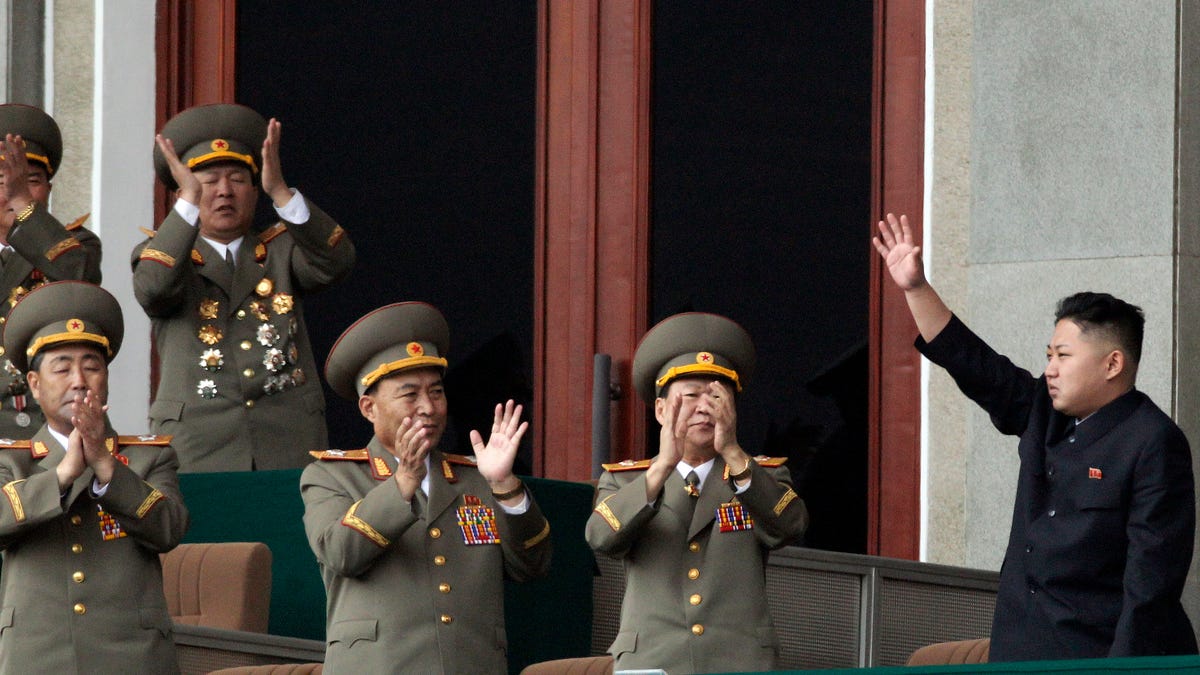
April 14, 2012: North Korean leader Kim Jong Un, left waves as North Korean military officers clap in a stadium in Pyongyang during a mass meeting called by the Central Committee of North Korea's ruling party on Saturday. (AP)
PYONGYANG, North Korea – North Korean leader Kim Jong Un spoke publicly for the first time Sunday, just two days after a failed rocket launch, praising his father Kim Jong Il's "military first" policy during celebrations marking the 100th birthday of the nation's late founder.
Kim, who has been seen but not publicly heard since taking over after Kim Jong Il's death in December, stepped to the podium to speak before tens of thousands of people gathered in Pyongyang's main square for meticulously choreographed festivities meant to glorify his grandfather, North Korea founder Kim Il Sung.
Kim Jong Un said the era when nuclear arms could be used to threaten his country was "forever over." He called for strengthening the country's "military first" policy by placing the "first, second and third" priorities on military might.
He said his country had built a "mighty military" capable of both offense and defense in any type of modern warfare.
"Superiority in military technology is no longer monopolized by imperialists," he said.
Soldiers are more important than rockets and artillery, Kim said, and military officers should treat their troops "like brothers and sisters."
He said he is "heartbroken" that the rival Koreas have been divided for decades, and said North Korea "will cooperate with anyone" who truly wishes for reunification.
North Korea defied the U.S. and others Friday by firing a long-range rocket that space officials said was mounted with an observational satellite despite warnings against pushing ahead with the provocative launch. Washington and others say it was a covert test of long-range missile technology.
Hours after the rocket splintered into pieces over the Yellow Sea, the country made an unusual admission of failure, but Kim did not mention the launch in his remarks Sunday.
Kim Jong Un has since underlined the country's "military first" policy with a budget that allocates a sizable chunk of funding to defense spending.
International condemnation of the rocket firing was swift, including the suspension of U.S. food aid, and there are worries that the North's next move could be an even more provocative nuclear test.
The U.N. Security Council denounced the launch as a violation of resolutions that prohibit North Korea from developing its nuclear and missile programs. The council imposed sanctions on North Korea after its first nuclear test in 2006 and stepped up sanctions after its second in 2009.




















